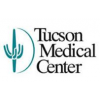Description
Minimum Qualifications
Education : Masters Degree in Social Work and licensure as a clinician or undergoing clinical supervision; or Master Degree in Education (Counseling);
or Master’s Degree in Marriage and Family Therapy.
Licenses / Certification : Licensed Master Social Worker (LMSW), Licensed Clinical Social Worker (LCSW), Licensed Professional Counselor (LPC), Licensed Marriage Family Therapist-Associate (LMFT-A), or Licensed Marriage Family Therapist (LMFT)
Experience / Knowledge / Skills :
- Five (5) years psychiatric / healthcare field experience preferred, Internships considered.
- Knowledge of best practices in working with various psychiatric populations.
- The ability to work independently.
- Proven capability in conducting evaluations to determine the psychosocial and psychiatric needs of adults, children and families.
- Demonstrates the ability to complete thorough risk assessments for suicide and homicide.
- Effective use of the role of the Diagnostic Statistical Manuel (DSM) in diagnosing mental illness.
- Demonstrates an ability to recommend the appropriate psychiatric levels of care.
- Applies crisis intervention techniques as well as evidenced based counseling techniques with both individuals and family members.
- Developed skill set of family systems and effective strategies for engaging the family in the patient’s treatment.
- Maintain clinician annual core competencies in : HIPAA / Privacy, Cultural Competence, Information Security Awareness, Domestic Violence, Levels of Care, Medications, Substance Use, DSM, Suicide / Homicide Assessments, and Psychiatric Emergencies.
- Theoretical knowledge of interviewing, assessment, organizational and problem solving skills.
- Ability to apply theory into the practice of : 1) identifying appropriate community resources on assigned caseload and 2) working collaboratively with patients, families, multi-disciplinary team and community agencies to achieve desired patient outcomes 3) Seeking consultation / supervision from team clinical leaders on complex psychiatric and / or medical cases when clinically appropriate.
- Possess knowledge of the importance of interpersonal communication and negotiation skills in interactions with patients, families, physicians and health care team colleagues.
Good analytical and PC skills. Understands the need to develop collaborative relationships with physicians, families, patients, interdisciplinary team and other community agencies.
Good communication skills and the theoretical knowledge of the importance of negotiation skills.
Openness to working with people of all social, economic, and cultural backgrounds; being open-minded and adaptable to change.
Demonstrate the ability to connect patients and families with necessary services, both inside and outside the MHHS network.
Some knowledge of services available in the local community, particularly services available to patients with limited or non-existent payment resources.
Demonstrate patience and tact when dealing with clients and other staff.
Demonstrates commitment to the Partners-in-Caring process by integrating our culture in all internal and external customer interactions;
delivers on our brand promise of "we advance health" through innovation, accountability, empowerment, collaboration, compassion and results while ensuring one Memorial Hermann.
Principal Accountabilities
- On the basis of a Comprehensive Behavioral Health Assessment, the BHCII will assess the patient and their psychosocial risk factors through evaluation of current and prior functioning levels, patient’s mental health history, severity of psychiatric symptoms, appropriateness and adequacy of support systems, reaction to illness and ability to cope.
- Evaluates for self-injurious or harmful behaviors and recommends precautions according to patient acuity.
- Consults with BHS medical directors (psychiatrists) and attending physician for case review and medication recommendations.
- Provides psychiatric diagnoses and appropriately document clinical criteria and psychiatric symptoms.
- Provides counseling and / or treatment to individuals, couples, families, or groups by establishing and maintaining a therapeutic relationship to understand and intervene in intrapersonal, interpersonal, and psychosocial dynamics;
and to diagnose and treat mental, emotional, and behavioral disorders and addictions.
- Educates to adults, children and families experiencing emotional disturbances, mental illness or problems related to substance abuse.
- Intervenes with patients and families regarding emotional, social, and financial consequences of illness and / or disability;
accesses and mobilizes family / community resources to meet identified needs.
- Provides intervention in cases involving child abuse / neglect, domestic violence, elderly abuse, institutional abuse and sexual assault.
- Serves as a resource person and provides crisis counseling and intervention related to treatment decisions.
- Advocates for patient and family empowerment and independence to make autonomous health care decisions and access needed services within the health care system and the community at large.
- Ensures safe care to patients adhering to policies, procedures, and standards, within budgetary specifications, including time management, supply management, productivity, and accuracy of practice.
- Promotes individual professional growth and development by meeting requirements for mandatory / continuing education, skills competency, supports department-based goals which contribute to the success of the organization;
serves as preceptor, mentor, and resource to less experienced staff.
- Other duties as assigned.










